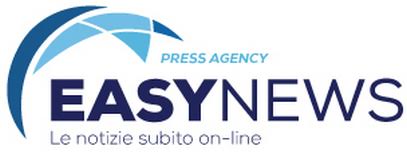
COVID-19 LESSONS LEARNT: Launch of the first Pan-European Network for Disease Control
Hosted by UKHSA and initially chaired by Dame Jenny Harries, the new network will strengthen disease surveillance and outbreak response across the European Region
London, 22 April 2024
The WHO Regional Office for Europe today jointly launched the Pan-European Network for Disease Control (NDC), with the UK Health Security Agency (UKHSA). The Network will be hosted by UKHSA, with UKHSA Chief Executive, Dame Jenny Harries as interim chair of the network Steering Group.
A network of health security networks, The NDC’s mission is to bolster the preparedness of the WHO European Region, spanning 53 countries across Europe and Central Asia, by proactively identifying and mitigating potential risks before they escalate into regional or global threats.
The NDC will
- play a vital role in keeping people safe – facilitating collaboration and knowledge-sharing between nations, public health agencies, academia, and civil society.
- promote common standards to help facilitate a unified approach to disease management across Europe and Central Asia.
- leverage the existing networks convened through WHO/Europe and the European Centre for Disease Prevention and Control (ECDC) to create opportunities for technical collaboration, and research.
- promote the development of innovative approaches, facilitate sharing of case studies, technical expertise, best practices, and resources to help the Network members and European Member States develop new skills and partnerships.
- improve interdisciplinary coordination among animal, human, and environmental sectors at national, regional and global level, taking a One Health approach to disease control.
“Europe and the world were not prepared for COVID-19, despite repeated warnings from scientists that a global pandemic would strike sooner or later,” said Dr Hans Henri P. Kluge, WHO Regional Director for Europe. “The pandemic laid bare the weaknesses in our regional and global health architecture. Hasty reactions not informed by science led to border closures, vaccine-hoarding, and inadequate sharing of health data. Our political and health systems were simply not equipped to deal with a pandemic of this size and severity. The next pandemic or global health emergency could be even worse, so we must prepare for it now.”
One of the key recommendations of an independent commission in 2021 on the lessons learnt from the pandemic, chaired by former Italian Prime Minister Mario Monti, was to set up a Pan-European Network for Disease Control. This is because the WHO European Region is vast, stretching from the Atlantic to the Pacific Oceans, comprising 53 Member States in Europe and Central Asia. Coordinating and sharing information across this diverse region poses a series of challenges, which were exacerbated by the COVID-19 pandemic.
“At its core, as envisaged by the Monti Commission, the NDC represents a bold vision for the future—a future where data flows, knowledge is shared, and resources are mobilized effectively,” continued Dr Kluge. “It is a platform that transcends borders, bridging the divides that have historically hindered our ability to respond swiftly and decisively to health threats.”
“Pathogens have no respect for borders,” said Dame Jenny Harries, UKHSA Chief Executive. “The reality driven home by COVID-19 is that these threats are not confined to specific areas, they are global, and as such require a global response. Cooperation between countries is therefore key to protecting people’s health, regardless of nationality or location.
“The range of health security threats we face as a global community is significant, diverse, and growing. We are already facing big health challenges from infectious diseases like mpox and COVID-19, from antimicrobial resistance, from emerging zoonotic pathogens like Zika and dengue, from foodborne illnesses, and from environmental, chemical, and radiological hazards. If we are to combat them effectively, we have to work together.”
The NDC will be more inclusive than previous disease control networks, incorporating both EU and non-EU countries as well as bringing together multilateral bodies from the EU, UN, and Central Asia.
“It is a great personal and professional honour to have been asked to chair the Steering Group in the early stages of the newly launched NDC,” concluded Dame Jenny Harries. “The UK Health Security Agency has made cooperation and collaboration across international borders a major priority. We have developed partnerships with governmental, academic, and private sector organisations all across the globe to share data, expertise, and insights, build and enhance capability, and cooperate in research to better enable the world to respond effectively to the health threats we face. Chairing the start of the NDC is yet another example of Britain’s commitment to regional and global health security.”
“As we convene this first Network meeting, we stand at a pivotal moment in history,” concluded Dr Kluge. “The challenges we face are unprecedented in their scale and complexity, from the ongoing threat of infectious diseases to the spectre of climate change and geopolitical instability. In the face of such daunting challenges, the creation of a Pan-European NDC embodies our unwavering commitment to forge stronger bonds of cooperation and solidarity to counter infectious diseases and health emergencies. It serves as a testament to our shared resolve.”
ENDS
NOTES TO EDITORS:
- At the time of launch, the NDC consists of 17 countries, some represented by more than one national institution, and 10 regional or multilateral public health bodies/agencies.
- Countries: Croatia, Estonia, France Georgia, Germany, Greece, Italy, Kazakhstan, Moldova, Montenegro, Netherlands, Serbia, Slovenia, Spain, Turkiye, UK, Uzbekistan.
- Public health bodies: EU Directorate-General for Health & Food Safety (DG SANTE), European Centre for Disease Prevention and Control, Eurasian Economic Commission, European Health Emergency Response Authority, Organization of Turkic States, The Statistical, Economic and Social Research and Training Centre for Islamic Countries, South-Eastern Europe Health Network, WHO Hub for Pandemic & Epidemic Intelligence, WHO European Centre for Humanitarian and Health Emergencies Preparedness, WHO/Europe Health Emergencies Programme.
- The NDC falls under Preparedness 2.0, WHO/Europe’s emergency preparedness and response umbrella established in the wake of COVID-19.
- The NDC also complements and contributes to global emergency preparedness and response mechanisms including the International Health Regulations and the Pandemic Agreement currently being negotiated by WHO Member States ahead of the World Health Assembly in May.
CONTACTS:
- WHO/Europe: Bhanu Bhatnagar, bbhatnagar@who.int
- UKHSA: Luke Weeks, Luke.Weeks@ukhsa.gov.uk
This information was brought to you by Cision http://news.cision.com
If you would rather not receive future communications from WHO Regional Office for Europe, please go to https://optout.ne.cision.com/en/Y1EFM8trvBh7LsyzpiGctpSWjQw3sivsK71qr8BXcunMtFMFWtseqL4vkjEHkGUYH2HA963TSNvFZ3c9yYVkvevRJvnTcNnSgXey3L9rBdL3y9CHZF9p2PZz51JADiL8FWQ.
WHO Regional Office for Europe, Marmorvej 51, Copenhagen, 2100 Denmark

